SAINT MAUD (2020)
A pious nurse becomes dangerously obsessed with saving the soul of her dying patient.
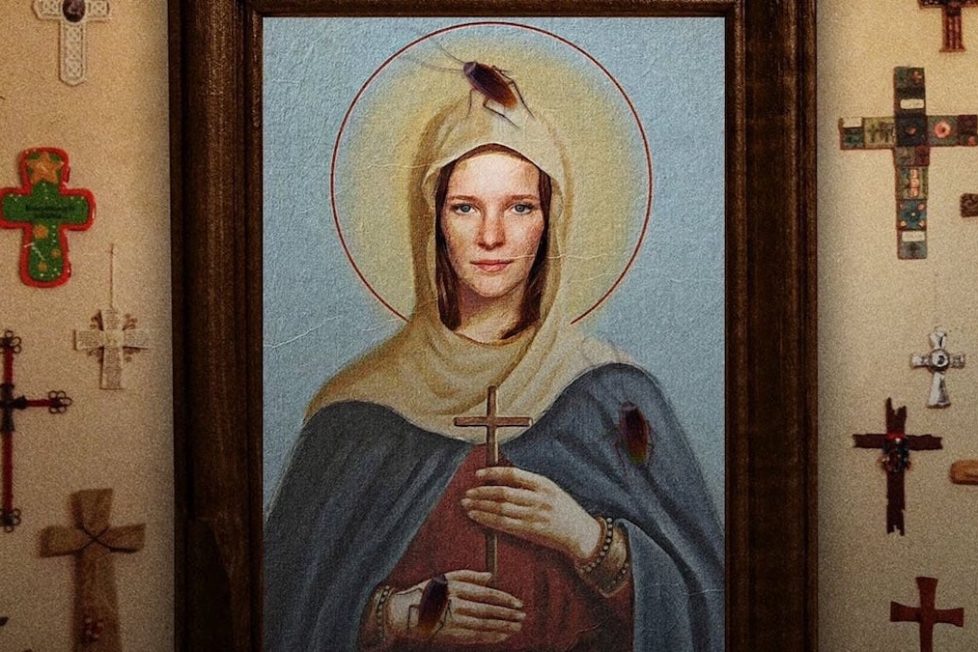
A pious nurse becomes dangerously obsessed with saving the soul of her dying patient.


Devout nurse Maud (Morfydd Clark) is assigned to care for a terminally ill former dancer and choreographer, Amanda Köhl (Jennifer Ehle). Seeking a mission from God, Maud comes to believe she’s destined to save her patient’s soul. However, her cause is threatened by others, leading the young carer down an increasingly unhinged path.
A24 have been blessing audiences with a slew of thought-provoking and unusual horrors over the past few years. Even their lesser efforts have been refreshingly different, which that can’t be said for the majority of Blumhouse’s output which is increasingly just cash-grabs and remakes. In this case, the horror of Saint Maud lies in an eerie character study rather than gruesome shocks.
This may be a surprise to those expecting an all-out horror movie released in time for Halloween. The marketing was misleading in this regard, something that’s been a problem for A24 before. It Comes at Night (2017) and The Witch (2015) were also presented as straightforward horrors when their scares were actually more psychological in nature. Saint Maud is in a similar vein to those films; a slow burn that’s often too quiet and disconcerting in its approach to scares. It treads familiar ground with originality and confidence, to the point where you don’t realise the film has its hooks in you until it decides to wrench them out.
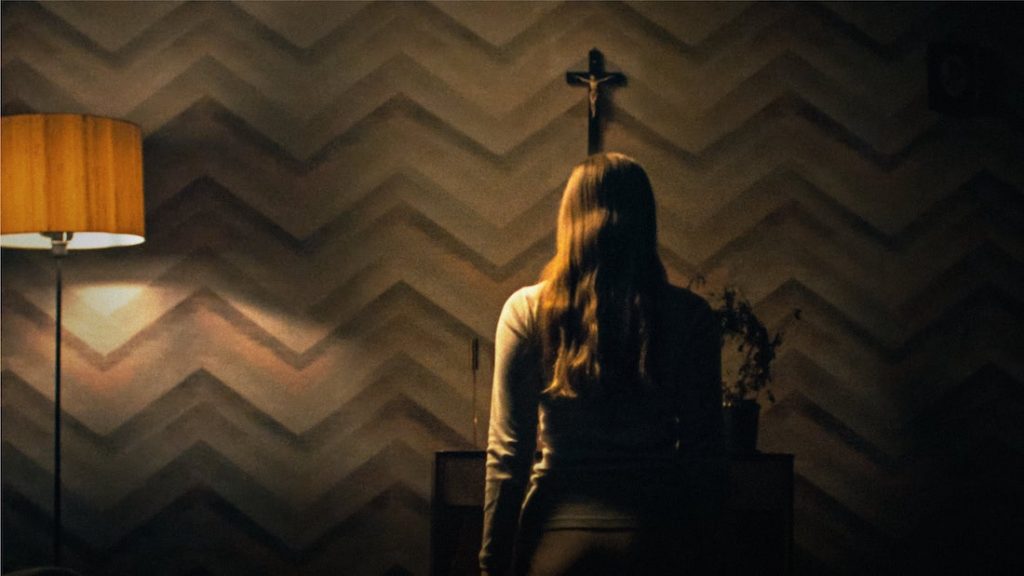
The film’s nerve-wracking atmosphere is helped by its lead actress, Morfydd Clark, a true star in the making. She’s equal parts earnest and terrifying as Maud, able to switch from gentle vulnerability to a frightening intensity at the drop of a hat. It’s a remarkable performance bolstered by director Rose Glass’ stewardship, which emphasises Maud’s severe isolation. Even in crowded spaces, the young nurse could very well be on her own island, disconnected from others.
The character bears some resemblance to Carrie White from Brain De Palma’s classic Carrie (1976), as they’re both young women who despite their best efforts are continually out of step with the world around them. Even when Maud’s commitment to her cause becomes unnerving, it’s hard not to sympathise with someone craving meaning in their life.
The film’s location, the seaside town of Scarborough, is an excellent choice in furthering Maud’s displacement. It’s exceedingly dreary with little to do except visit the beach or engage in acts Maud would deem sinful. Even before she committed herself to God, it’s clear that Maud’s sincerity and intensity always marked her as different in this depressingly average coastal town. Ben Fordesman’s cinematography captures the dull and scummy nature of a British small town well, from its grey sea to the garish lighting of the local pub.
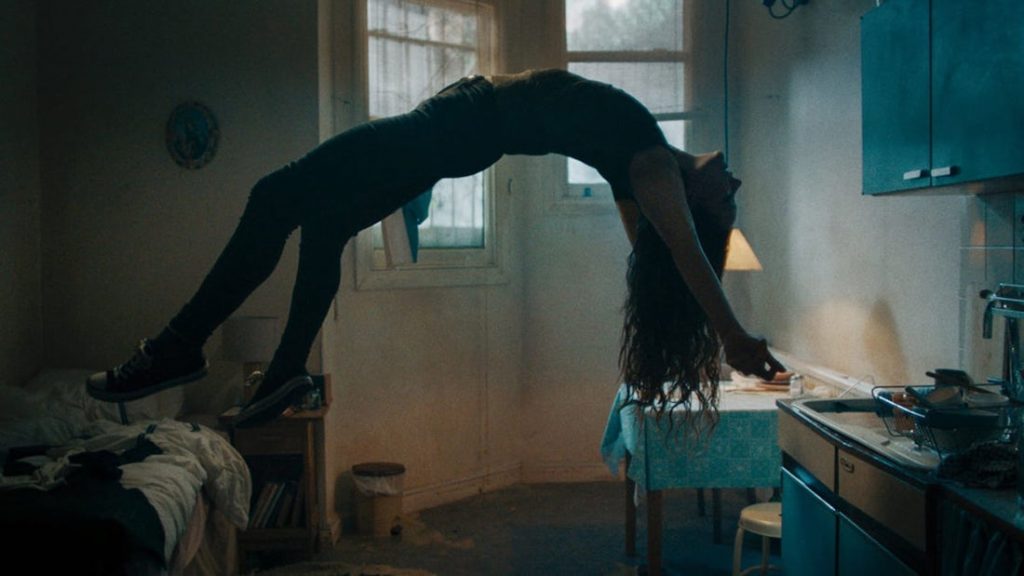
What makes Saint Maud more intriguing than most spiritual horrors is its portrayal of blind faith as something monstrous. Christianity, especially Catholicism, is often treated simply as good versus evil in horror. There’s little questioning of the dogma or the institutions behind it. Recent popular horror such as The Conjuring (2013) approached Christianity as moral absolutism, unquestioning in its portrayal of religious authority figures as forces of good. Even masterpieces such as The Exorcist (1973) ultimately drove home the message that divine power can save us.
It’s become tiresome seeing religion as antiquated and oppressive as Catholicism being treated as the definition of morality. What a relief it is then to find a horror that revels in the nastier side of religion. Mortification of the flesh, nightmarish William Blake-style imagery of angels and demons, and strange altars… they’re all hallmarks of Maud’s beliefs. Not only this but Maud’s interactions with divine forces are more visually similar to demonic possession than sainthood. Whether it’s in the throes of ecstasy or achieving penance through acts of self-harm, her physical expressions of faith appear unholy.
However, it’s clear through Glass’ direction that Maud seeks this kind of rigid black-and-white guidance in order to make sense of the world. She certainly considers herself “lost” due to her checkered history. What’s seen of Maud’s past is smartly kept brief, only allowing glimpses into her past without showing too much. Enough is revealed to realise how deeply unwell and traumatised Maud is, begging the question of how much of what she experiences is real. Others certainly humour her (especially her patient Amanda) and her most compelling interactions with the divine happen when she’s alone. This ambiguity makes for a much richer and compelling story and Glass knows how to toy with Maud’s (and the audience’s) desire to see proof of something bigger than ourselves.
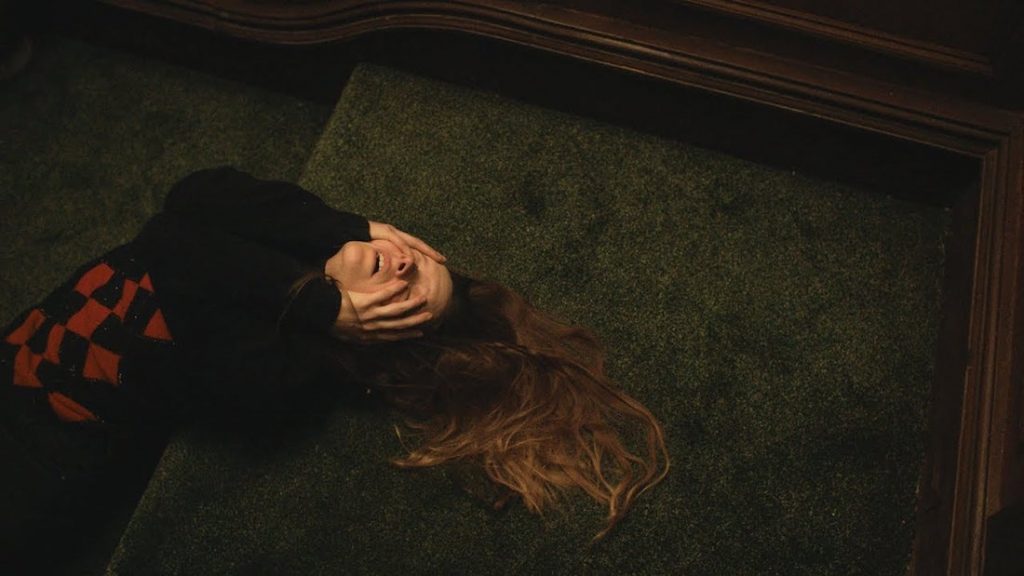
Overall, Saint Maud is an impressive debut with few flaws. The pacing of the first half takes its time and there’s sadly not enough time spent with Jennifer Ehle’s Amanda, the accomplished and worldly patient who despite her large social circle is often as lonely as Maud is. Their relationship is strangely touching and deeply intimate in the way only a carer and patient’s bond can be, too. Maud sees Amanda at her weakest and recognises the vulnerability hiding underneath her glamorous facade.
There’s also an undercurrent of sapphic eroticism in their shared physical therapy, a connection that in a different world could’ve become a positive, meaningful relationship. Unfortunately, they’re both too damaged for this to ever develop. Ehle is reliable as ever as Amanda, entirely convincing as a faded star who’s both amused and touched by Maud’s concern for her soul. It’s a shame that when the focus moves away from the pair, the film somewhat suffers without Ehle’s presence.
Saint Maud is a stand-out directorial debut destined to make stars of its director and lead, and rightly so. Although it takes a while to hit its stride, this effective chiller is compelling and assured in how it delivers its frights. And the film’s final act saves the best for last, delivering a series of disturbing turns that haunt you long after the lights come up.
UK | 2020 | 84 MINUTES | COLOUR | ENGLISH • WELSH

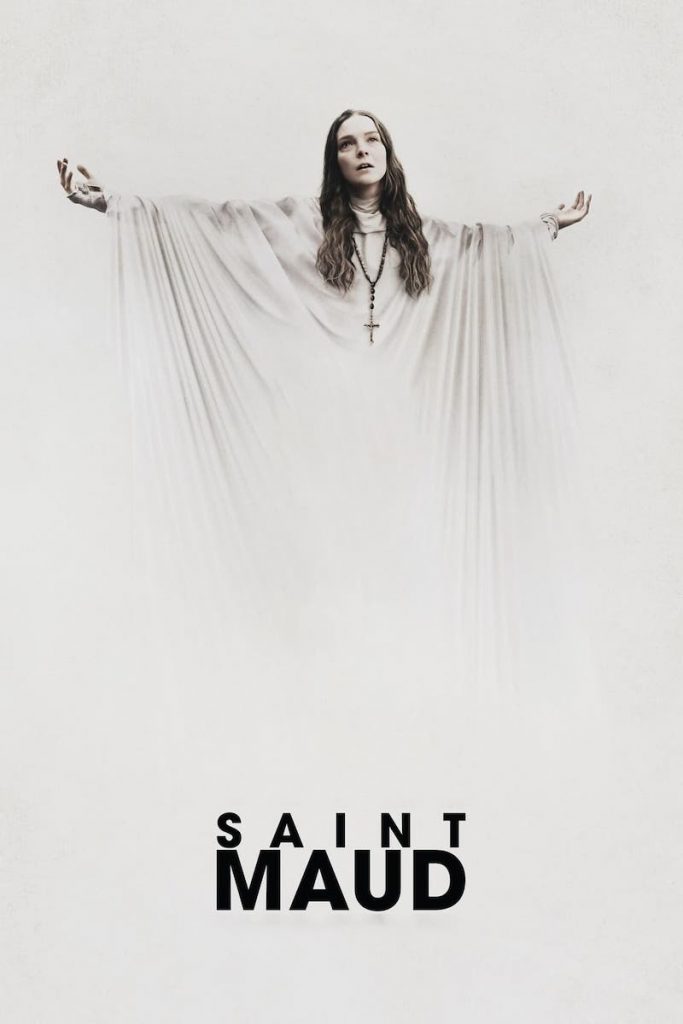
writer & director: Rose Glass.
starring: Morfydd Clark, Jennifer Ehle, Lily Knight, Lily Frazer, Turlough Convery, Rosie Sansom, Marcus Hutton, Carl Prekopp & Noa Bodner.
